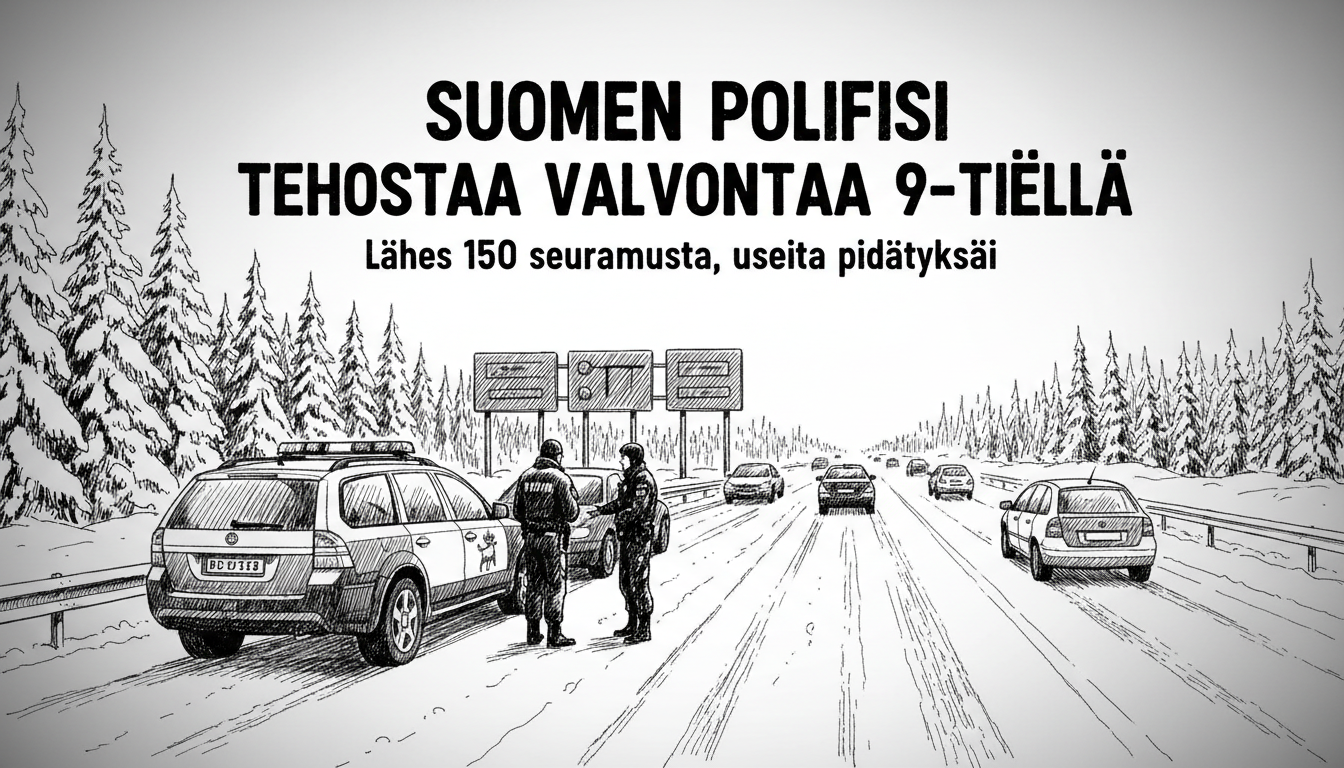Finnish authorities have launched a comprehensive three-week traffic surveillance operation along Highway 9 in the Inner Finland region. The enhanced monitoring campaign began in mid-November and will continue through early December. Police data reveals significant traffic safety concerns emerged during the initial enforcement week.
Officers documented 97 traffic fines and issued 45 penalty notices for various driving infractions during the first seven days. The operation also led to the apprehension of three intoxicated drivers and four individuals with active arrest warrants. Authorities additionally recorded one firearms-related offense during the traffic stops.
This intensive surveillance reflects Finland's ongoing commitment to road safety enforcement. Highway 9 serves as a crucial transportation artery connecting central Finnish cities to southern regions. The road experiences substantial commercial and passenger traffic throughout the year.
Finnish traffic policing follows the European Union's road safety framework while adapting to local conditions. Finland maintains some of Europe's strictest drunk driving limits at 0.05% blood alcohol content. The country's graduated penalty system increases sanctions based on violation severity and driver history.
Road safety campaigns typically intensify during darker winter months when hazardous driving conditions prevail. Reduced visibility and slippery road surfaces contribute to increased accident risks. The current operation aligns with seasonal safety initiatives coordinated through Finland's Ministry of Transport and Communications.
Local residents have expressed mixed reactions to the heightened police presence. Some drivers welcome the safety focus while others question the resource allocation. Community feedback suggests most citizens support traffic enforcement that targets dangerous behaviors rather than minor infractions.
The three-week surveillance period allows police to assess compliance patterns and identify persistent problem areas. Traffic safety experts note that sustained enforcement typically produces better long-term results than sporadic campaigns. Data collected during these operations informs future traffic planning and resource deployment.
International visitors should note that Finland enforces traffic regulations strictly regardless of driver nationality. Rental car companies typically provide comprehensive information about local traffic laws. Foreign drivers must carry valid licenses and insurance documentation at all times.
What broader implications does this traffic initiative carry? The operation demonstrates Finland's data-driven approach to public safety. Police resources follow statistical evidence showing where interventions yield maximum impact. This methodology reflects the Nordic preference for practical solutions grounded in measurable outcomes.
The current Highway 9 surveillance represents standard Finnish law enforcement practice rather than extraordinary measures. Similar operations occur regularly across Finland's national road network. Police typically announce major enforcement campaigns to maximize their deterrent effect on driving behavior.

